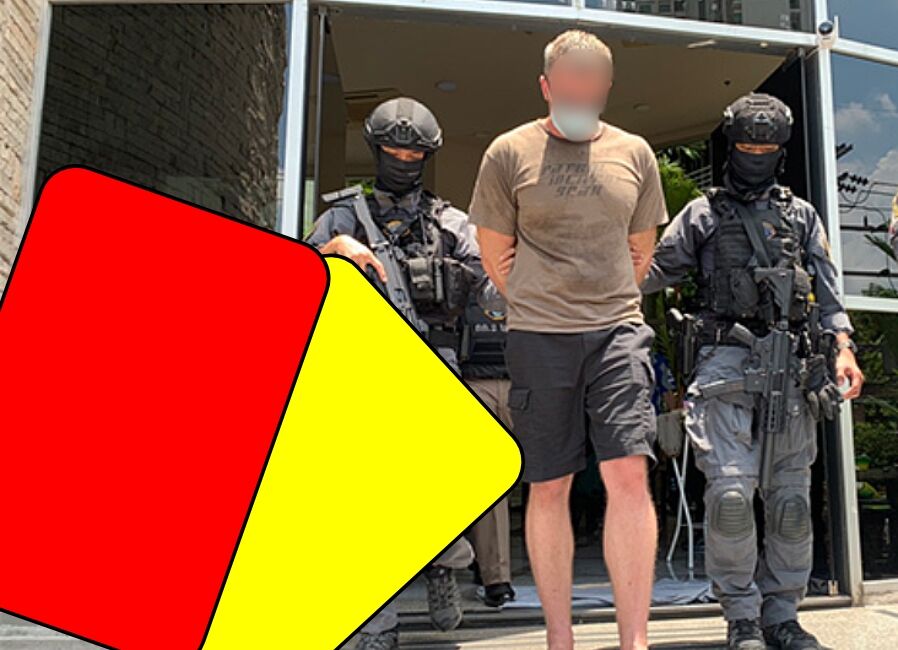Phuket’s red card system for foreigners nabs 6

Phuket Immigration has announced those punished with their new yellow card and red card system for misbehaving foreigners. The new trial system was established to combat claims that law-breaking foreigners didn’t know the rules so, much like a football game, Phuket Immigration has implemented a yellow and red card system as a warning system.
If a foreigner commits an offence for the first time, they will receive a yellow card, and their behaviour will be reported to consulates. If they repeat the offence, they will receive a red card and their visa will be withdrawn, and they will be deported. Information was typically vague as to what offences and actions could earn these cards.
This month so far, two foreigners received red cards and four received yellow cards. Authorities also note that 181 foreigners are currently involved in criminal cases and working their way through the legal process.
According to Phuket Immigration, most of the foreigners involved in these cases are from Russia, France, the UK, Myanmar, and Cambodia. The majority of cases are located in Patong. The most common offences involve drunk driving, overstaying, illegally entering the kingdom and working without a permit.
Phuket Immigration adopted the football-like card system, explaining that a red card results in the suspension of one’s visa with immediate departure from Thailand. The severity of the offence determines the length of the ban on re-entry to Thailand.
A large number of foreigners who come to Phuket are not well-versed in Thai customs and regulations, according to Phuket Immigration. Consequently, many of them claim they were unaware of the laws or regulations that are broken, and the consequences of their actions. Many use the defence of having seen others doing the same without punishment, so they assumed they could do the same without consequences.
Phuket Immigration made clear that what others do or what others are caught for is irrelevant, and the only consideration in punishment is the individual’s actions. Travellers are responsible for being familiar with the laws of the countries they visit. The police or immigration is not obligated to teach each arriving tourist all the laws and regulations.
In the first half of March, two French, a Ukrainian and a Swedish national were on the receiving end of yellow cards. Red cards were handed out to a Swedish and a French national who were both then deported.
The trial card program, currently operational in Phuket only, could potentially be extended to other tourist hotspots like Pattaya, Chiang Mai, and Koh Samui should it prove effective. Still, several uncertainties surround the initiative, including which actions and infractions would result in the issuance of yellow cards.
Phuket Immigration responded with the assurance that abiding by Thailand’s laws and regulations should keep foreign visitors out of trouble. They noted that their statistics suggest that very few tourists and foreigners would ever get into trouble serious enough to merit a yellow or red card.
Latest Thailand News
Follow The Thaiger on Google News:


























